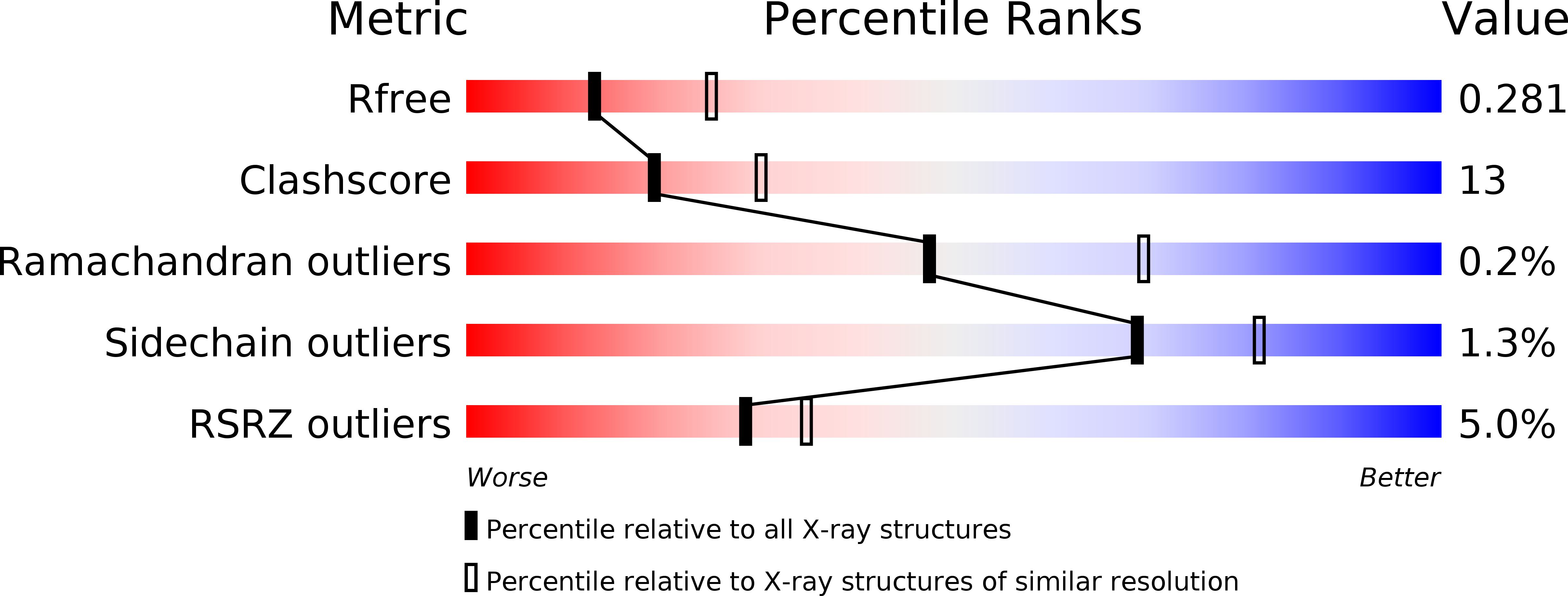
Deposition Date
2011-08-15
Release Date
2011-12-07
Last Version Date
2024-10-16
Entry Detail
Biological Source:
Source Organism(s):
Mus musculus (Taxon ID: 10090)
Mus musculus, Homo sapiens (Taxon ID: 10090, 9606)
Mus musculus, Homo sapiens (Taxon ID: 10090, 9606)
Expression System(s):
Method Details:
Experimental Method:
Resolution:
2.75 Å
R-Value Free:
0.29
R-Value Work:
0.24
R-Value Observed:
0.24
Space Group:
P 61 2 2


